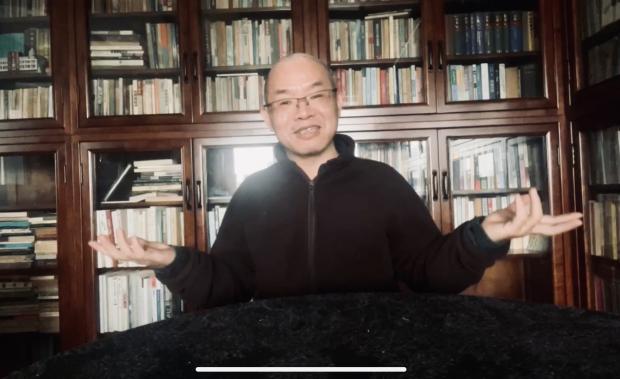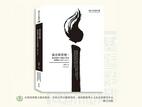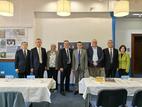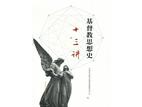Christian scholar Ran Yunfei said in a lecture that he is researching Chinese biographies of foreign missionaries in China, which is often neglected.
In a lecture titled “The Preliminary Study of Chinese Biographies of Foreign Missionaries to China”, Ran who converted to Christianity in 2015, claimed on October 16 that after suggesting to believers that they read one missionary biography a month, he realized that this field was rarely researched.
Many studies focused on the history of church schools, Chinese churches and Christianity in China. But a wide variety of these works were written by foreigners; there was little research on these three areas done by the Chinese themselves.
“Why would I study this area? Because there are many missionary biographies written by Westerners and few works done by Chinese. The study of missionary biographies is weak (in China). Biographies are the accounts of ‘preaching their life and work’. They are not totally reliable, requiring analysis and judgment to determine the degree of authenticity,” said the famous writer, who was born in Chongqing in 1965.
“Reading biographies is a person’s special hobby. You can target a person whom you attempt to understand when reading them. For Christians, those missionaries to China can give people strength in addition to that emanating from our Great Savior. the Lord Jesus Christ. We are easily stirred when reading them. For example, some missionaries preached in one’s hometown and had close ties to Chinese Christians. This will help to understand the Lord’s work more clearly.”
He added that there was a lack of textbooks about missionaries.
“The advantage in producing missionary biographies is that they have a natural spiritual background. This involves grammar, logic and rhetoric and demands a high amount of knowledge on literature. Many dialogues they contain are very important,” explained Ran.
Foreign missionaries contributed to the birth of Baihua, or written, vernacular Chinese. “The Chinese Bible translated by the Society of Jesus adopted Mandarin Chinese. The (Chinese) translation of John 6:48 in 1805 had the style of vernacular Chinese. But the Chinese in modern China hardly understand the early scripts, so the earliest modern vernacular Chinese version of the Four Books (The Great Learning, The Doctrine of the Mean, the Analects, and the Mencius) was translated by German missionary Paul Kranz in 1910.”
The famous public intellectual stressed that reading these biographies was very helpful in understanding the history of Chinese churches as well as Chinese pastors,
John Livingstone Nevius formulated the “Nevius Plan”, making him the first person who proposed the “three-self” principle (self-governance, self-support, self-propagation), but Hudson Taylor and Robert Morrison proposed the idea even earlier.
An autobiography, “The Sons of Han: Stories of Chinese Life and Mission Work” by a British missionary, claims that the development of the church in the 1850s traded a life-for-a-life. Basically speaking, 50 people followed Christ at the sacrifice of 50 missionary lives.
Ran added that we should value the spiritual heritages of missionaries to China such as Robert Morrison and Hudson Taylor and remember the contributions of those spiritual giants to the Chinese church. What they had gone through in missions could inspire the Chinese to preach the Gospel in their own native land. The year 1866 was a landmark in the history of Chinese missions. Their work in Wenzhou and northeastern China influenced the future of missions in the entire country. “You will grasp a more clear sight of God's grand blueprint after reading their biographies. It reminds me of Acts 29.”
Ran warned that we should not judge missionaries by our own current understandings, but instead only comment on them while respecting the objective facts.
Citing the example of the death of a young missionary at age 16, he said,“This was the will of God. We need to ponder over how God viewed the matter. . . . We must see the glory of God and the unseen spiritual heritage when studying this. We must discern the spiritual legacy of Robert Morrison. They are our respected spiritual ancestors, but we are permitted to assess their work.”
“In the early days of church schools, faith was not a requirement when enrolling students. As a result, many children of non-Christian elite officials were admitted and non-Christian teachers were hired. During the late Qing Dynasty and early period of the Republic of China, many elites were trained in 13 church schools, yet many of the graduates preferred materialism over Christianity. This is my assessment.”
In the Q&A part, a question was raised on “how to regard missionaries who were engaged in Sinology”. Ran answered: “Missionaries were confronted with two temptations while doing Sinology: to think too highly or too lowly of Chinese culture. For example, James Legge did a good translation of Chinese classics, but to me there was no Gospel in them. Missionaries should avoid overrating or underrating of Chinese culture, for the world has no culture higher than that of the Gospel. Missionaries who looked down on China put Western culture above Chinese culture. Many Western missionaries shared Western civilization instead of the Gospel. Particularly when referring to real problems, they tended to believe Western civilizations were wiser than Chinese culture. It is correct to view all cultures soberly when preaching the Gospel."
- Translated by Karen Luo












